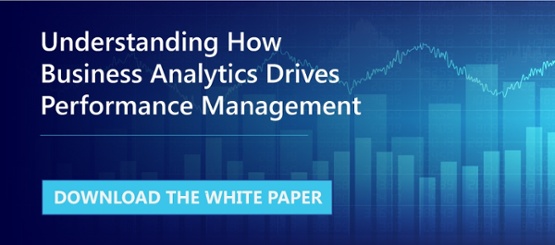The Promise of Big Data
Given the adoption rate of smart devices, cloud computing, and SaaS business and consumer models, there's never been a time when more is known about the behaviors and habits of customers, employees, patients, and stakeholders. Big data is the outcome of an ever increasing wired and online populous, driven by continual advancements in computing and data warehouse technology and capacity. The promise of big data is better informed, insightful and reasoned decision making – the more data we collect and analyze, the greater the potential positive impact of the decisions we make.
Enterprises and organizations of all type and scale have reached a level of data breadth and volume where decision makers can leverage advanced data analysis to maximize their economic, competitive and market effectiveness. Big data is the answer to the question of how to improve future business decisions and the enabling factor is advanced analytics.
As a result, analytics are increasingly important and valued by many organizations as a strategic part of their business to manage performance, improve operations and mitigate risk.
Prescriptive Analytics: Going from What and When, to Why and How
Analytics have advanced from providing rudimentary descriptions of what occurred, to insightful analysis of what is likely to occur in the future, to now recommending specific actions to create predictable outcomes.
Prescriptive analytics focuses on this last order of analytics, prescribing actions based on desired outcomes; given specific scenarios, past and current events. The ability to manage outcomes through prescribed actions increases the effectiveness of decision makers and manages risk in the decision making process.
Strategic decisions can now be based not only on what has or is likely to occur in the future, but through prescribed actions based on why and how things occur to create desired outcomes.
Leveraging Prescriptive Analytics in Your Business
Prescriptive analytics is changing the way decisions are made, while at the same time increasing decision effectiveness. Here are examples of how prescriptive analytics are being used in various industries and organizations to achieve desired outcomes:
- Transportation – Prescriptive analytics can help manage transportation capacities, prescribing ticket prices at varying rates during times of increased or decreased demand to maximize capacity and profitability.
- Healthcare – Healthcare providers can use prescriptive analytics to leverage operational, economic, demographic and health trends, to plan for investments in new facilities and equipment.
- Oil and Gas – Based on data collected from past drilling and production efforts, prescriptive analytics can help cost effectively locate and produce oil and gas, prescribing where and how to drill to maximize production and minimize cost and environmental impact.
- Logistics – Prescriptive analytics is being used to find the best route for deliveries & backhaul; updated real-time given current conditions, past performance data, load availability and vehicle specifications
- Sales and Service – Prescriptive analytics can be used by inside sales and customer support centers to make specific offers and modifications to subscriptions or buying plans based upon the nature and progression of a customer interaction.
Conclusions
Enterprises and organizations of all kind are embracing the opportunity to manage and exercise big data and advanced analytics. Early efforts in advanced analytics helped organizations understand occurrences in their business and predict future activities based on historical data, business rules and known activities. Latest advances in computing and data warehousing have enabled prescriptive analytics – a higher order of advanced analytics to prescribe actions to create desired outcomes and mitigate risk.
Prescriptive analytics enables enterprises and organizations across industries to increase their profitability, improve market competitiveness and create first-in-market opportunities as a result of better informed and thoughtful business decisions.
About the Author
As Director of Data Science at SoftServe, Inc., Sergii Shelpuk is a leading expert in deep learning neural networks, machine learning, artificial intelligence, and predictive analytics. A graduate of the Kyiv Polytechnic Institute and the Yaroslav Mudryi National Law Academy of the Ukraine, Sergii leads the development of innovative data science models for a wide spectrum of industries.







